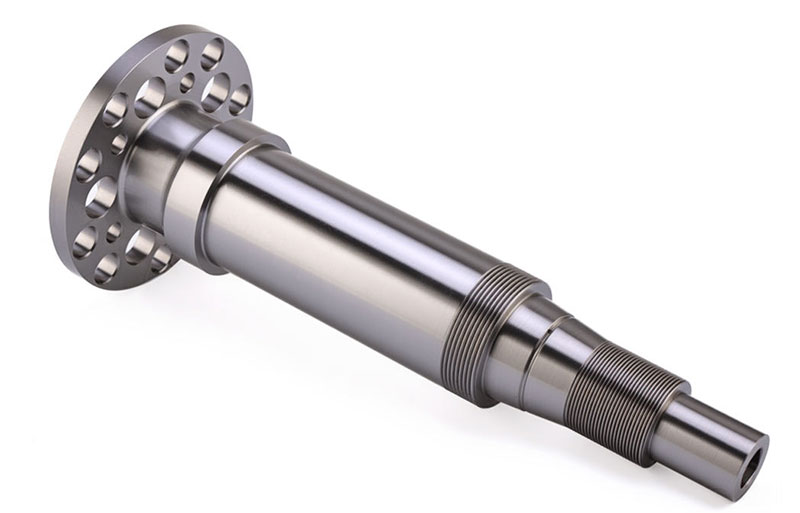Various materials are suitable for machining precision shafts for different applications. These materials must exhibit outstanding strength and endurable strength to withstand the requirements of the intended application. Common types of compatible materials include:

Aluminum
Aluminum is a lightweight and corrosion-resistant material. It exhibits excellent machinability, making it a choice for various applications where weight is crucial. Aluminum is your go-to material if the intended application requires lightweight machined shafts.
Stainless Steel
Stainless steel is a reliable metal for making precision shafts. Product engineers often use stainless steel when corrosion resistance is crucial. For instance, stainless steel grades 304 and 316 offer excellent resistance to corrosion. Hence, they have high usage in applications with high exposure to water or corrosive elements, such as chemical processing plants or marine environments.
Carbon Steel
Carbon Steel has excellent tensile strength and machinability. It can withstand heat treatment to enhance its hardness. As a result, it is a widely used material in shaft machining. The 1045 grade is an apt example of carbon steel material with moderate strength suitable for applications such as pump shafts or motor shafts.
Titanium
Titanium is a common choice for machining precision shafts for high-performance applications due to its high strength-to-weight ratio and outstanding corrosion resistance. The aerospace sector often uses titanium for precision shafts due to its properties.
Alloy Steel
It offers the high strength and toughness required in precision machined shafts. Alloy steel 4140 or 4340 are typical alloys used to make precision shafts for heavy-duty applications like machinery or large industrial motors.
Nickel Alloys
Nickel alloys are ideal for machining precision shafts for highly demanding applications. It offers remarkable corrosion resistance and excellent high-temperature strength. Inconel is a good example of nickel alloy suitable for precision shafts in turbines or other high-temperature applications.
